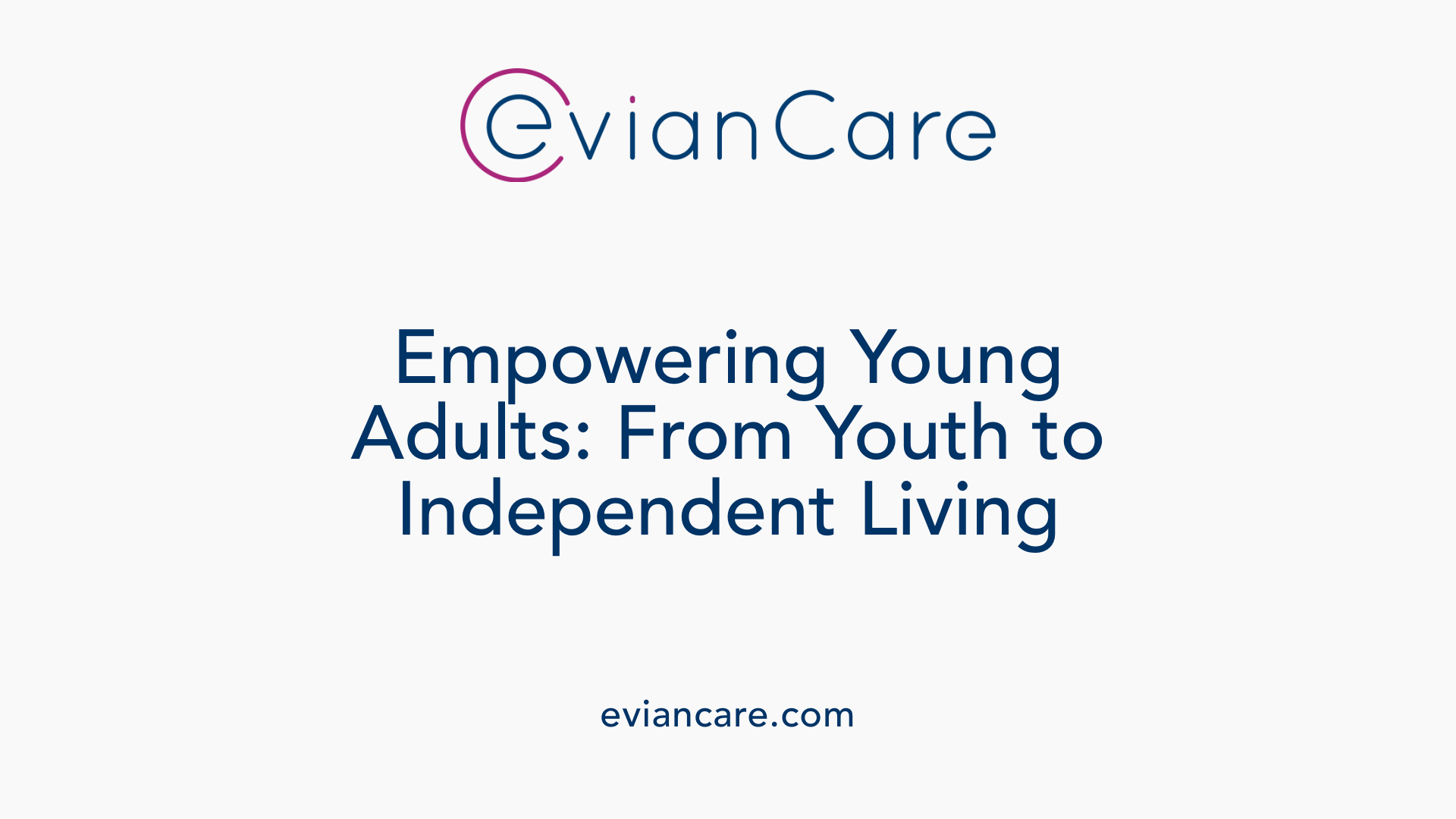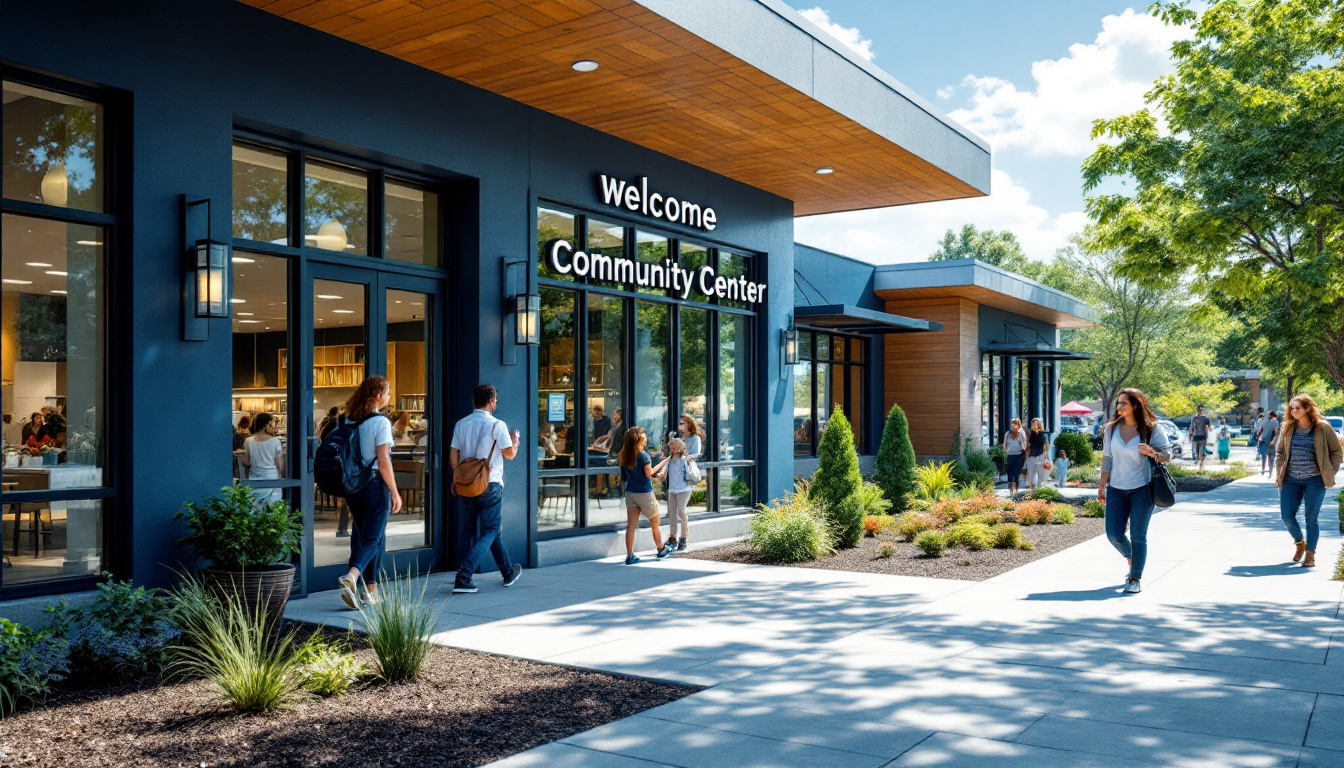
Understanding the Critical Transition Phase
Supporting families through the transition from youth to adulthood is a vital process that ensures individuals with developmental disabilities (DD) achieve fulfilling lives full of independence, employment, and community participation. This comprehensive guide offers insights into planning strategies, legal considerations, community resources, and best practices to facilitate a smooth and person-centered transition.
The Foundations of Transition Planning for Young Adults with DD

What is the transition process from youth to adulthood for individuals with developmental disabilities?
Transitioning from childhood to adulthood is a critical phase for individuals with developmental disabilities. This process typically begins around age 14 and involves many coordinated steps to ensure a smooth shift into adult life. Schools, healthcare providers, social services, families, and community organizations work together to prepare young people for independence, employment, and community engagement.
Early planning is vital, focusing on the young person's goals, strengths, and preferences. This includes discussions about healthcare, housing, daily living skills, and employment opportunities. During this period, healthcare transition from pediatric to adult providers begins, and legal considerations like supported decision-making or guardianship are addressed.
Resources such as checklists, guides, and transition planning tools support families and professionals. The goal is to foster independence, self-advocacy, and community participation while ensuring that health and social supports are well-coordinated.
Throughout the process, active involvement of young people in decision-making enhances their autonomy and readiness for adult responsibilities. A person-centered approach emphasizes tailoring services to the individual’s unique needs, fostering dignity, and respecting their human rights.
What factors should be considered when planning support for the transition into adulthood for individuals with developmental disabilities?
Effective transition planning requires a comprehensive view of each individual's needs and circumstances. Key considerations include:
- Ongoing health needs, including medical, dental, and mental health services, alongside smooth medical transition from pediatric to adult healthcare providers.
- Educational goals aligned with post-secondary education, vocational training, or employment pursuits.
- Employment opportunities, including supported employment, pre-employment training, and skill development activities.
- Housing options and residential supports that promote independence and safety.
- Legal frameworks such as supported decision-making tools, powers of attorney, or guardianship, ensuring legal rights are preserved.
- Multi-agency collaboration, involving families, educators, health professionals, and community organizations, to develop integrated and person-centered support plans.
- Legal obligations of local authorities under laws like the Children and Families Act or the Care Act, which mandate assessments and support arrangements.
- Promoting social inclusion through community involvement, recreation, and relationship-building.
- Making reasonable accommodations to support independence and participation in community life.
Legal, social, and emotional aspects uniformally influence the success of this transition, requiring a flexible, timely, and culturally sensitive approach.
Who should be involved in transition IEP (Individualized Education Program) planning?
Transition planning for youth with developmental disabilities involves a collaborative team. Central to this process are:
- The student, actively involved to share their interests, goals, and preferences.
- Family members, guardians, or caregivers, providing insights and support.
- Educators such as teachers, counselors, and special education staff who understand the student’s academic and social development.
- Transition coordinators and school-based support staff who facilitate planning and resource connection.
- Community agency representatives, including vocational rehabilitation counselors, supported employment providers, and healthcare professionals.
- Postsecondary institutions, if applicable, to support college and further education planning.
- Employers and community mentors to prepare for vocational experiences.
Early involvement, starting at age 14 or earlier if needed, ensures that all parties can contribute to developing realistic, achievable plans. The focus remains on fostering independence, self-advocacy, and preparing for adult roles.
What are some important considerations with respect to transition to adulthood for learners with intellectual disabilities?
Supporting learners with intellectual disabilities requires individualized and comprehensive planning. Important considerations include:
- Creating person-centered transition plans that respect each individual’s interests and aspirations.
- Promoting independence through supported employment, community-based training, and daily living skill development.
- Facilitating social integration and community participation to build relationships and social skills.
- Ensuring access to healthcare, including training in health management and future healthcare providers.
- Addressing legal aspects, including supported decision-making options and long-term legal planning.
- Coordinating with multiple agencies to unify services focused on education, employment, health, and social inclusion.
- Regular review and adjustment of transition plans to adapt to changing needs and preferences.
- Encouraging self-advocacy and empowering learners to make choices.
- Supporting the development of skills necessary for independent living and active citizenship.
Each element aims to maximize the individual’s autonomy, well-being, and community engagement during and after the transition.
What are examples of specific transition services for young adults with developmental disabilities?
Transition services encompass a broad array of programs tailored to individual needs. Examples include:
- Vocational training and supported employment programs that help individuals gain work experience and develop job skills.
- Pre-employment transition services such as job exploration, workplace readiness training, and assistance with job placement.
- Postsecondary education supports, including college visits, tutoring, and accommodations.
- Skill development activities in independent living, like budgeting, cooking, and using transportation.
- Medical transition services that help shift healthcare management responsibility from pediatric to adult health providers.
- Community activities that promote socialization, recreation, and community participation.
- Home modifications and residential supports for those choosing independent or supported living arrangements.
- Use of person-centered planning tools to set individual goals and support strategies.
These services are often coordinated through agencies like vocational rehabilitation, Medicaid programs, and community service providers, all emphasizing the importance of customized, comprehensive planning.
How can families support a successful transition for their young adult with developmental disabilities?
Family involvement remains a cornerstone of successful transition planning. Families can:
- Begin early, ideally around age 12-14, to develop a comprehensive, flexible transition plan.
- Encourage their child’s active participation in planning and decision-making to foster independence and self-advocacy.
- Collaborate with schools, healthcare providers, and community agencies to align services and supports.
- Assist in exploring and securing benefits like Medicaid, SSI, and housing supports.
- Promote daily living skills, health management, and social interaction to build independence.
- Connect with support networks, advocacy organizations, and peer groups to exchange information and experiences.
- Engage in legal planning, considering guardianship versus supported decision-making suited to the individual’s capacity.
- Advocate for appropriate services, accommodations, and opportunities for growth.
Supporting these efforts with patience, understanding, and proactive engagement can greatly enhance the individual’s quality of life and their journey into adulthood.
Legal and Healthcare Considerations in Transition Planning

What are some important considerations with respect to transition to adulthood for learners with intellectual disabilities?
Supporting learners with intellectual disabilities in their transition to adulthood requires careful, individualized planning. This process should include comprehensive plans that focus on health management, vocational training, and educational goals suited to each person's strengths and interests. Emphasizing independence through supported employment and residential arrangements helps foster self-sufficiency.
Community involvement and social skills development are essential for meaningful relationships and integration into societal roles. Collaboration among families, educators, healthcare professionals, and community agencies ensures a seamless transition. Regular review and adjustment of these plans are necessary to meet evolving needs and age-appropriate goals, all aimed at empowering individuals to lead fulfilling adult lives.
What role do family physicians and healthcare providers play during transition?
Family physicians are vital in ensuring successful healthcare transitions. They should participate in creating, reviewing, and updating personalized transition plans that address health needs throughout the shift from pediatric to adult healthcare systems.
Providers must focus on maintaining continuity of medical services, addressing developmental health concerns, and supporting health autonomy through education about managing medications, health conditions, and appointments. Familiarity with local adult healthcare providers, specialists, and support resources is also crucial.
Proactive involvement from healthcare professionals helps prevent gaps in care, supports mental and physical health, and encourages young adults to take active roles in managing their health, promoting overall well-being.
What are legal considerations involved in transition, including decision-making and guardianship?
Legal aspects of transition revolve around understanding capacity, competence, and autonomy. Young adults with DD should be supported in developing decision-making skills through supported decision-making arrangements, which allow them to make choices with assistance, rather than automatically defaulting to guardianship.
Legal tools such as Power of Attorney or advance directives can help facilitate supported decision-making. Guardianship, which grants legal oversight, should be considered only when absolutely necessary and when less restrictive options cannot ensure safety.
Family physicians and legal advocates play a crucial role in guiding families through these processes, ensuring that the young adult’s rights and dignity are preserved while obtaining appropriate support and legal safeguards.
How do legislation like the Children and Families Act, Care Act, and Mental Capacity Act support transition?
Legislation such as the Children and Families Act, Care Act, and Mental Capacity Act provide frameworks that promote person-centered, rights-based, and inclusive transition planning. These laws mandate early assessments and individualized care strategies that respect the person’s preferences.
They facilitate access to community-based services, improve coordination among providers, and emphasize supported decision-making options over guardianship. This legal support helps ensure that young adults with DD can transition to adulthood in ways that honor their rights, foster independence, and provide necessary protections.
Family physicians and service providers use these laws to develop comprehensive plans that align with legal standards, thereby promoting safe, effective, and respectful transitions tailored to each individual’s needs.
Community Resources and Support Networks for Transition Success

What are some examples of specific transition services for young adults with developmental disabilities?
Transition services for young adults with developmental disabilities encompass a wide range of supports designed to promote independence and successful integration into adult life. Vocational training and supported employment are prominent examples, including pre-employment transition services such as job exploration, workplace readiness, and work-based learning experiences. These services aim to build practical skills for entering the workforce.
Educational activities like college visits, guidance counseling, and skill assessments prepare students for post-secondary education options. Independent living skills training is another critical area, covering community navigation, daily living skills, household management, and communication. Medical transition services support youths moving from pediatric to adult healthcare, emphasizing self-care, medication management, and health literacy.
Additional services include day habilitation programs, which focus on developing social and daily living skills through community activities tailored to individual goals. All these services are coordinated via multi-agency plans and are often documented within Individualized Education Programs (IEPs). Their primary focus remains on achievable goals in employment, education, and independent living, culminating in a comprehensive transition plan that guides young adults through this critical phase.
Empowering Families for a Successful Transition into Adulthood
Transitioning into adulthood with developmental disabilities poses unique challenges, but with early planning, collaborative efforts, and access to community resources, families can pave the way for their loved ones to lead independent, fulfilling lives. Understanding legal options, fostering self-advocacy, and engaging in person-centered planning are key to supporting successful outcomes. Ensuring that young adults have the skills, knowledge, and supports they need to navigate adult systems is a shared responsibility—one that family, community, and professionals must approach with compassion, patience, and dedication. As awareness grows and resources expand, families are better equipped to guide their loved ones into the next chapter of life with confidence and hope.
References
- The Transition to Adulthood for Youth with Developmental Disabilities
- Improving transition to adulthood for adolescents with intellectual ...
- How to Support a Work Transition for Young Adults with Disabilities
- Change Ahead: Creating a Road Map to Help Families Navigate the ...
- Considerations for Alternative Decision-Making When Transitioning ...
- [PDF] Transition to Adulthood for Young Adults with Developmental ...
- Transition into Adulthood - DDD Services - The Gateway School












